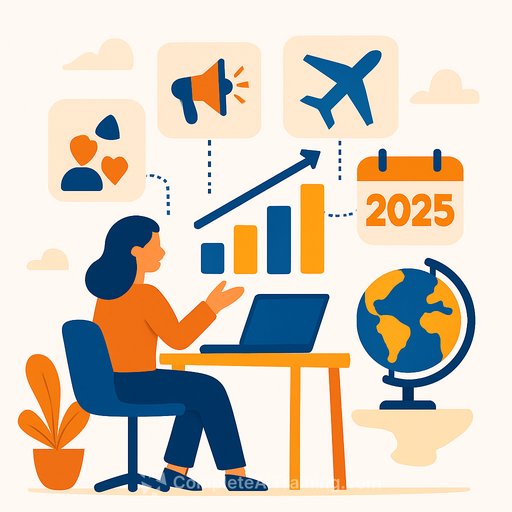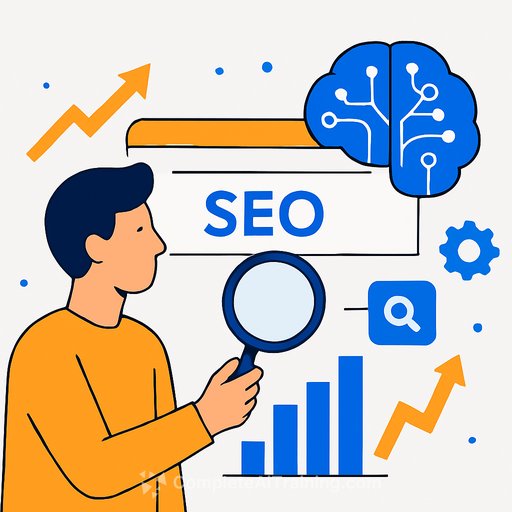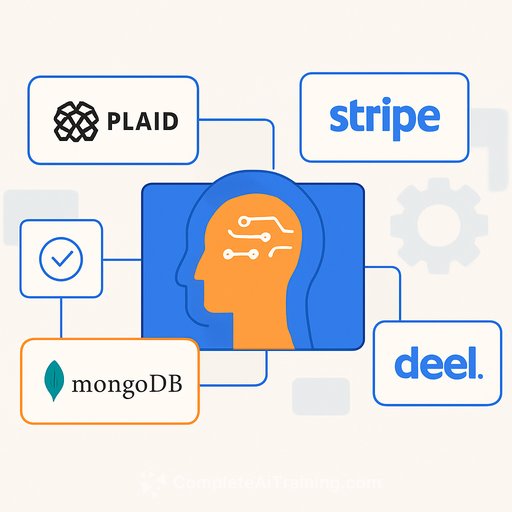Marketing Strategies for Travel Agents in 2025
Digital innovation is changing how consumers plan their trips, pushing travel agents to find fresh ways to attract attention amid tough competition from online booking platforms. Traditional methods like brochures and referrals are giving way to data-driven tactics that use emerging technologies and personalized experiences.
Looking ahead to 2025, success for travel agents will likely come from combining AI integration, sustainable initiatives, and highly targeted content.
Embracing AI for Personalized Journeys
Travel agents are adopting artificial intelligence to improve client interactions and predict preferences. AI-powered chatbots can handle questions 24/7, qualify leads, and suggest options based on previous behaviors. This approach boosts efficiency and can increase conversion rates by up to 30%.
AI helps agents move beyond generic packages to create experiences that truly connect with clients. By analyzing social media data and booking history, agents can recommend wellness retreats for stressed travelers or adventure trips for thrill-seekers. Generative AI tools also assist in producing dynamic content like virtual tours and personalized email campaigns.
These techniques help agencies stand out by automating newsletters that highlight trending destinations such as eco-friendly spots in Costa Rica or cultural tours in Japan.
Sustainability as a Core Marketing Pillar
Eco-conscious travel is becoming mainstream. More travelers want agents who promote ethical practices, such as partnering with carbon-neutral airlines and eco-lodges. Sharing these stories on Instagram, TikTok, and X attracts attention, especially for trips featuring green initiatives like zero-waste safaris or regenerative tourism in Europe.
Integrating sustainability into branding also improves SEO and positions agencies as thought leaders. Educational blog content on sustainable travel appeals to environmentally aware millennials and drives loyalty—agents highlighting green credentials report a 25% rise in repeat bookings.
Leveraging Social Media and Influencer Partnerships
Social media continues to heavily influence travel decisions. Over 60% of U.S. travelers use AI-enhanced social feeds to find destinations. Collaborating with micro-influencers who share authentic stories helps agents reach engaged audiences.
Hosting live Q&A sessions on LinkedIn or X about trends like hyper-private luxury escapes builds trust and interest. User-generated content campaigns encourage clients to share their experiences, turning satisfied customers into brand ambassadors.
Retargeting and Data-Driven Campaigns
Retargeting stands out as a top strategy, with personalized ads re-engaging past visitors. Data shows retargeting can increase engagement by 40%, reminding users of abandoned carts with offers like discounted flights.
Combining this with segmented email marketing boosts bookings. Drip campaigns that start with destination teasers and lead to exclusive deals keep prospects excited. Using AI to optimize send times further improves results.
Events and Experiential Marketing
In-person events are making a comeback, enhanced by technology. Virtual reality pop-ups let potential clients preview trips, creating immersive, memorable experiences.
Themed workshops, such as wine tastings linked to European tours, foster emotional connections that differentiate agents from online platforms. Tech-enabled conveniences like app-based concierge services extend marketing touchpoints beyond booking.
Measuring Success and Adapting Strategies
Tracking engagement rates and ROI is essential. A/B testing allows agents to adjust campaigns based on real-time data for better performance. The most effective strategies will balance innovation with authenticity, meeting traveler demands for meaningful, tech-savvy, and sustainable experiences.
Agents who adapt to these trends are more likely to maintain growth and stand out in a competitive market.
Your membership also unlocks:






